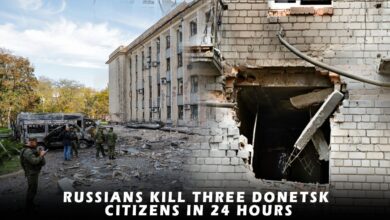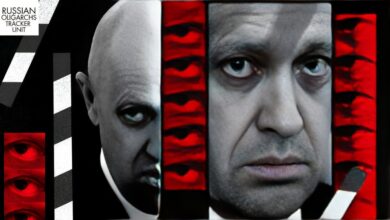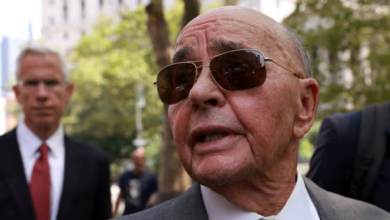5 convicts acquainted with Navalny’s prison, corroborate the horrible conditions

Imprisonment at IK3, where Aleksei Navalny tragically passed away, encompasses more than just enduring the bitter cold, appalling food, and physical abuse. The true hardship lies in navigating a system designed to crush the human spirit.
5 convicts corroborate Navalny condition
Locked in an Arctic prison, Aleksei A. Navalny likely endured his final days amidst some of the most inhumane conditions within Russia’s vast penitentiary system, according to five former inmates of the same penal colony where the Russian opposition leader was held.

These men, in phone interviews, recounted unbearable cold, repulsive food, unsanitary conditions, and beatings at Penal Colony No. 3 in the remote Yamalo-Nenets region, where Navalny arrived in December to serve out the remainder of his 19-year sentence. The conditions were reportedly particularly harsh in the solitary cells where Navalny is believed to have been held on the day of his death.
However, what made the prison, also known as IK-3 or the Troika, feared even by Russia’s toughest inmates, was the intense psychological pressure and isolation. It operated as a system designed to break the human spirit, demanding total and unconditional obedience to the guards’ will.
“It was complete and utter annihilation,” said Konstantin, a former inmate who spent time in the prison’s solitary confinement cells. “When I think about it, I still break into cold sweat,” he added, noting his ongoing struggle with mental illness since his release.
The New York Times interviewed four men who had served time in the Troika over the past decade, some as recently as weeks before Navalny’s arrival. Additionally, The Times spoke to one person who was in the colony at the time of Navalny’s death, as well as a friend of a recent former inmate. Their full names and certain personal details are withheld for their protection from potential retribution.
Navalny, whose funeral will take place on Friday in a Moscow cemetery, humorously depicted his time in the Troika in sporadic social media posts, utilizing sarcasm, wit, and understatement, which had helped solidify his role as the face of opposition against President Vladimir V. Putin.
Despite appearing increasingly gaunt and pale in his sparse court appearances, mostly conducted remotely via video call, Navalny managed to maintain an upbeat tone. The government claims Navalny died on Feb. 16 from natural causes, attributing his sudden collapse during a morning walk. However, his political movement alleges he was murdered on Putin’s orders. No concrete evidence has been presented to support either narrative.
In a post from January, Navalny described the compulsory morning exercises in Yamal at minus 26 degrees Fahrenheit as refreshing. He humorously remarked on the lovely fresh wind despite the cement fence enclosing the courtyard.
Navalny endured multiple stints of solitary confinement since his imprisonment in 2021. On the day of his death, he was slated for his 27th stint in solitary confinement, as confirmed by a spokeswoman for his political movement.
“The cells were crafted ‘to break people morally, until you agree to all the conditions of the prison administration,’ said a former Troika convict, who, despite being a murderer, had experienced time in the Troika’s solitary cells. ‘It was hell.’ Former inmates also recounted how men in solitary were required to stow away their beds from wake-up call to sleep time, compelling them to stand or sit for the majority of the day.
Eight EU Countries Push for Sanctions on Russia’s Judicial System Over Navalny’s Death
Situated in the tundra, the Troika is constructed to accommodate approximately 1,000 prisoners in one of Russia’s most isolated, stringent, and severe environments, which former inmates assert can verge on torture. The prison’s infamy traces back to the Soviet era, when it became an unofficial destination for the country’s convicted organized crime leaders. Under Mr. Putin’s regime, it has housed several of his political adversaries, including former oil tycoon Platon Lebedev.”
“The cells were meticulously designed ‘to break people morally, until they comply with all the conditions set by the prison administration,’ explained a former Troika inmate, who, despite his conviction for murder, had firsthand experience in the Troika’s solitary cells. ‘It was sheer hell.’ Additionally, former prisoners described how those in solitary were compelled to stow away their beds from wake-up call until bedtime, forcing them to stand or sit for the majority of the day.
Located in the harsh tundra, the Troika is engineered to house around 1,000 inmates in one of Russia’s most remote, strict, and punishing environments, a situation former inmates claim can border on torture. The prison’s notorious reputation dates back to the Soviet era, when it became an unofficial destination for the country’s convicted organized crime leaders. Under Mr. Putin’s rule, it has also accommodated several of his political opponents, including former oil magnate Platon Lebedev.”








